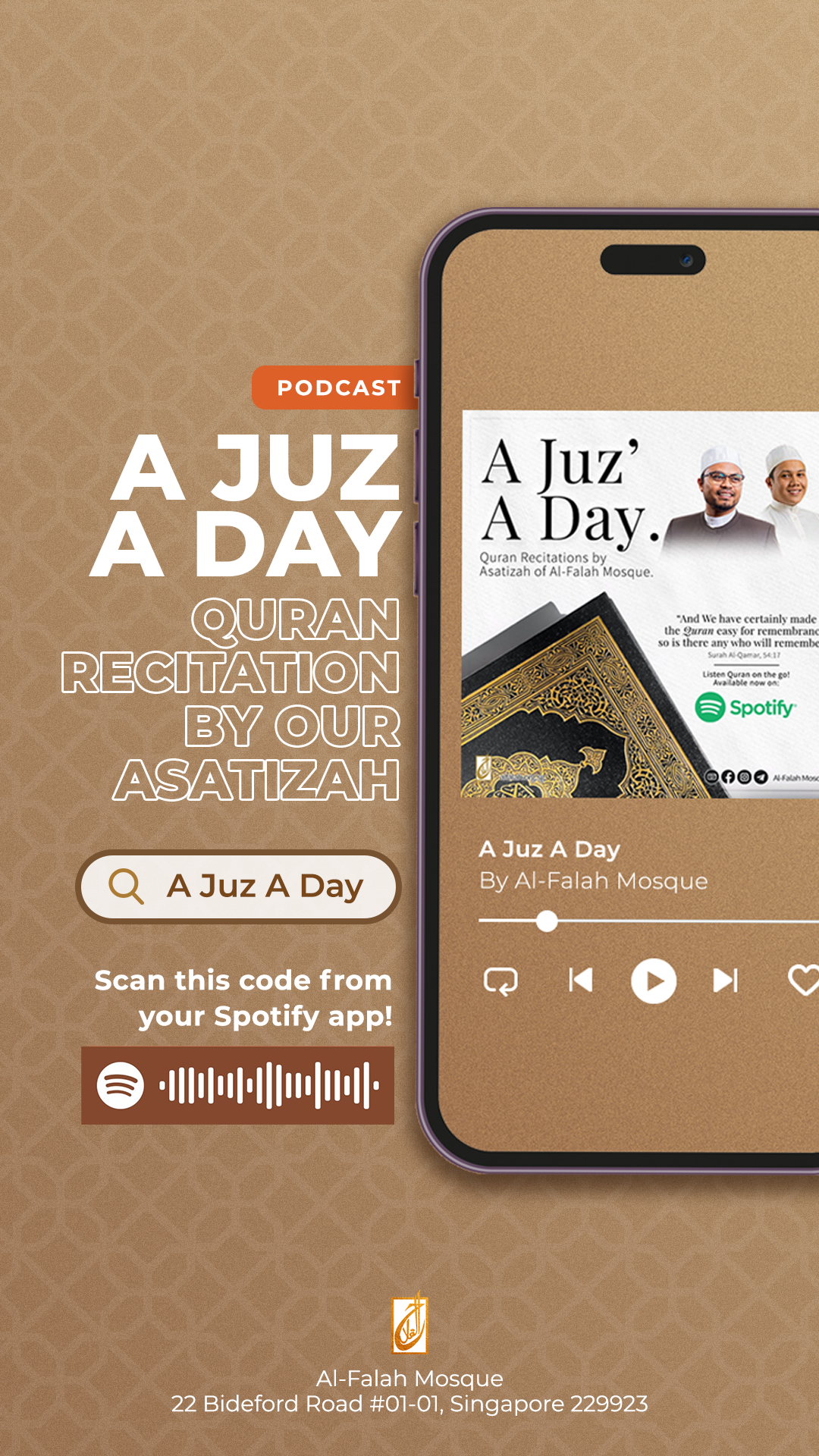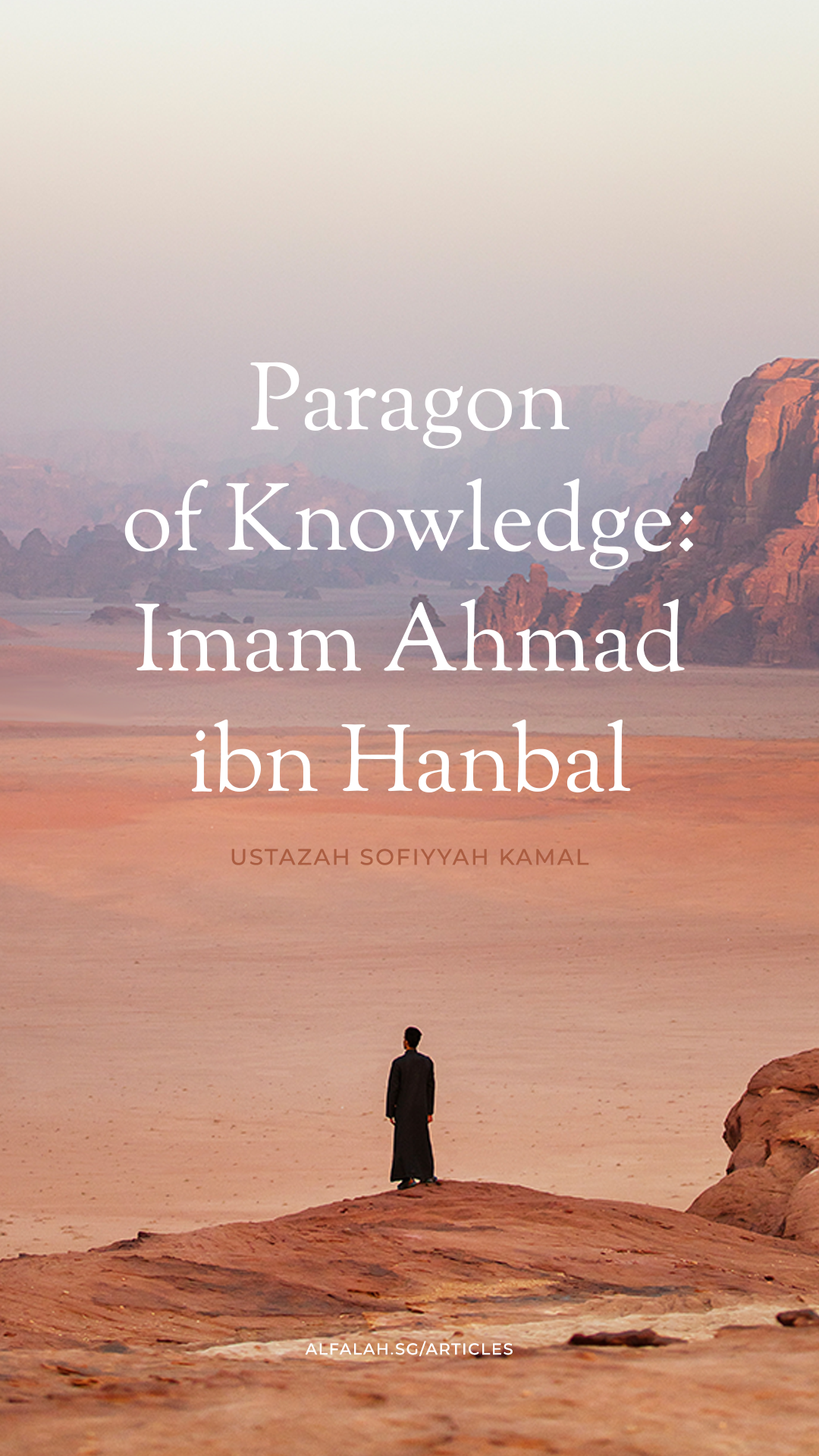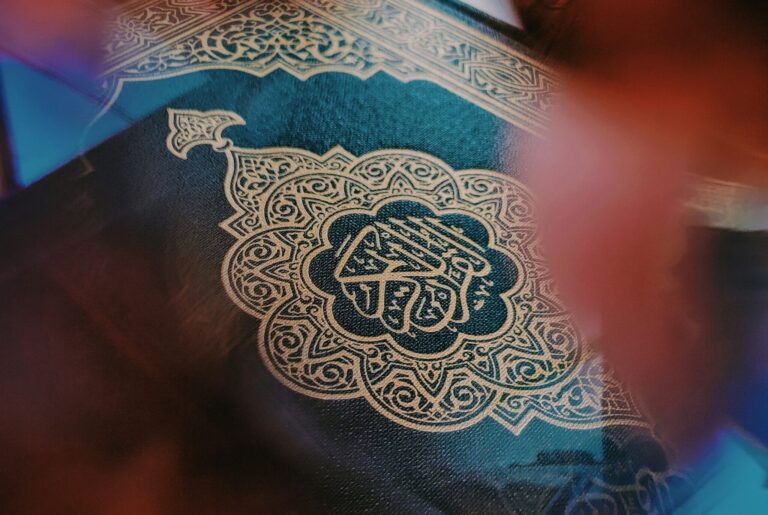Articles
The Sunnah & Etiquettes of Making Dua
- BY Ustazah Zahratur Rofiqah
- ON
- spirituality, faith, life, barakah
The Sunnah & Etiquettes of Making Dua
As Muslims, we repeat this supplication “It is You we worship and You we ask for help”, asking Allah s.w.t for guidance at least seventeen times a day through our five daily prayers. Our faith is strongly knitted to our submission to Allah s.w.t and to exalting Him alone. One of the manifestations of the faith is to call upon him in prayer or in simple terms to make Dua.
Making Dua is essentially simple because we can do it anywhere and in any situation. One can just utter, “O Allah, please bless my morning,” while he lying on his bed seconds after waking up from sleep. However, like many other things, making Dua has its Sunnah and etiquette. We, as servants, ought to try our best to make Dua in the best way possible; this is to show our humility as a servant and to express our acknowledgment to Allah’s Magnificence.
There is a myriad of Sunnah and etiquettes in making Dua, please allow me to share some of them in this article.
1. Have a sincere heart (Ikhlaas)
When supplicating, one’s heart needs to be connected to Allah s.w.t. This will in turn, help them to make the correct Dua; a Dua that is favorable to Allah s.w.t and free from His wrath.
A sincere heart will guide its master to yearn for goodness and righteousness and make everything a means to attain Allah’s pleasure.
2. Perform ablution (wudhu’)
Performing ablution is not obligatory when making Dua, however, performing it prepares a person to be in the right state of mind before making Dua.
Making ablution itself has many benefits such as expiating one’s sins, raising one’s status and giving one a peace of mind and heart. This makes it ideal for someone to present himself to Allah, asking His favour while in a state of purification (from ablution).
3. To start the Dua by glorifying Allah (Alhamdulillah) and salutations for Rasulullah s.a.w
From Faddaalah ibn ‘Ubayd r.a. who said: “The Messenger of Allah s.a.w heard a man making Dua in his prayer without glorifying Allah or sending blessings upon the Prophet s.a.w. The Messenger of Allah s.a.w said, ‘This man is in a hurry.’ He called him and said to him or to someone else, ‘When anyone of you makes Dua, let him start by glorifying his Lord and praising Him, then let him send blessings upon the Prophet s.a.w, then let him pray for whatever he wants.’” – Narrated by Imam At-Tirmizi.
Therefore, it is highly encouraged and courteous to make Dua this way and not make it seem like we are in a hurry. This is because it may appear impolite if we, the ones asking, do not ask in a beautiful manner. It also risks coming off as an order rather than a humble request. Indeed, a servant has no business making demands of his Creator.
4. Call upon Allah with utmost humility
This can also be translated into making Dua with a low voice. Abu Musa Al-Ash’ari r.a. said, ‘We were in the company of the Prophet s.a.w on a journey, and whenever we ascended a high place, we used to say Takbir (in a loud voice). The Prophet s.a.w said, “O people! Be kind to yourselves, for you are not calling upon a deaf or an absent one, but you are supplicating the All-Hearing, the All-Seeing”’. – Narrated by Imam Al-Bukhari.
In Surah Al-A’raf verse 205, Allah s.w.t also reminds us:
وَٱذۡكُر رَّبَّكَ فِي نَفۡسِكَ تَضَرُّعٗا وَخِيفَةٗ وَدُونَ ٱلۡجَهۡرِ مِنَ ٱلۡقَوۡلِ بِٱلۡغُدُوِّ وَٱلۡأٓصَالِ وَلَا تَكُن مِّنَ ٱلۡغَٰفِلِينَ
Meaning: “And remember your Lord within yourself in humility and in fear without being apparent in speech – in the mornings and the evenings. And do not be among the heedless.”
The beauty of it is that it serves as a reminder that Allah is very close to us—even closer than our own jugular vein. Allah SWT says in Surah Qaf, verse 16:
وَلَقَدۡ خَلَقۡنَا ٱلۡإِنسَٰنَ وَنَعۡلَمُ مَا تُوَسۡوِسُ بِهِۦ نَفۡسُهُۥۖ وَنَحۡنُ أَقۡرَبُ إِلَيۡهِ مِنۡ حَبۡلِ ٱلۡوَرِيدِ
Meaning: “And We have already created man and know what his soul whispers to him, and We are closer to him than [his] jugular vein.”
How wonderful it is that Allah, who already knows our deepest thoughts and feelings, still gives us the opportunity to express ourselves to Him and makes us feel heard and valued when we make Dua.
5. Invoke Allah by His Names
وَلِلَّهِ ٱلۡأَسۡمَآءُ ٱلۡحُسۡنَىٰ فَٱدۡعُوهُ بِهَاۖ وَذَرُواْ ٱلَّذِينَ يُلۡحِدُونَ فِيٓ أَسۡمَٰٓئِهِۦۚ سَيُجۡزَوۡنَ مَا كَانُواْ يَعۡمَلُونَ
Allah s.w.t has many names, and we are encouraged to call Him by His names which are suitable to our Dua. If we ask Him for forgiveness, we may call upon His name ‘Al-‘Afwu’ which means The Pardoner. If we are heartbroken, we may call upon His name ‘Al-Jabbar’ (The Compellor or The Repairer). And if we are in need of solutions, we may call upon His name ‘Al-Fattah’ (The Opener or The Granter of Success).
We grow closer to Allah s.w.t and gain confidence in the future when we invoke His name and contemplate its weight and significance. Understanding and internalising the meaning of His name will provide us with comfort and alleviate our concerns. As a result, we become happier and more optimistic.
6. Purify ourselves from sins
It is upon us to understand that sins can play a significant role in our Dua not being accepted by Allah s.w.t. This is clearly stated in the following hadith:
On the authority of Abu Hurairah r.a. who said: The Messenger of Allah s.a.w said:
“Allah the Almighty is good and accepts only that which is good. And verily Allah has commanded the believers to do that which He has commanded the Messengers. So the Almighty has said: “O (you) Messengers! Eat of the tayyibat (good things), and perform righteous deeds” [23:51] and the Almighty has said: “O you who believe! Eat of the lawful things that We have provided you” [2:172]. Then he s.a.w mentioned a man who, having journeyed far, is disheveled and dusty, and who spreads out his hands to the sky saying, “O Lord! O Lord!” while his food is haram, his drink is haram, his clothing is haram, and he has been nourished with haram, so how can [his supplication] be answered?” – Narrated by Imam Muslim.
This hadith teaches us that in order for our Dua to be accepted, we must be sure that our means of subsistence (money, food, and clothing) come from lawful sources. As a result, it is not sufficient to focus only on the manner in which we recite the Dua; rather, it is essential to pay attention to the way in which we live our lives. Fulfilling our financial responsibilities and giving others their due right are ways to ensure we are not taking what is not ours.
As a result, it is also critical for us to always repent and seek forgiveness from Allah s.w.t for both the mistakes we are aware of and those we are not. Furthermore, those who constantly ask Allah s.w.t for His forgiveness are promised with ease and a way out from distress. The following hadith echoes this exact point:
Ibn Abbas r.a. narrated: The Messenger of Allah s.a.w said: “If anyone constantly seeks pardon (from Allah), Allah will appoint for him a way out of every distress and a relief from every anxiety, and will provide sustenance for him from where he expects not.”
7. Have strong faith that your Dua will be accepted
Anas ibn Malik r.a. reported: The Messenger of Allah s.a.w said, “When one of you calls upon Allah, let him be determined in the supplication and he should not say: O Allah, give me if You will. There is no one to coerce Allah.”
From the hadith above, we understand that it is important for us to always be determined in our Dua and we should not supplicate half-heartedly. It is important for us to never give up hope that our dua will be granted, because even if it is not, there is a greater reward waiting for us, and Allah is the only One who knows what is best for us and what is not.
Allah s.w.t reminds us in Surah Al-Baqarah, verse 216:
كُتِبَ عَلَيۡكُمُ ٱلۡقِتَالُ وَهُوَ كُرۡهٞ لَّكُمۡۖ وَعَسَىٰٓ أَن تَكۡرَهُواْ شَيۡٔٗا وَهُوَ خَيۡرٞ لَّكُمۡۖ وَعَسَىٰٓ أَن تُحِبُّواْ شَيۡٔٗا وَهُوَ شَرّٞ لَّكُمۡۚ وَٱللَّهُ يَعۡلَمُ وَأَنتُمۡ لَا تَعۡلَمُونَ
Meaning: “Fighting has been enjoined upon you while it is hateful to you. But perhaps you hate a thing and it is good for you; and perhaps you love a thing and it is bad for you. And Allah Knows, while you know not.”
This optimism should inspire us to always ask Allah for anything and everything, and to not be afraid to ask Him for great things.
Abu Hurairah r.a. reported: The Messenger of Allah s.a.w said, “When one of you calls upon Allah, let him hope for the greatest of things. Verily, nothing has any greatness over Allah.” (Narrated by Sheikh Ibn Hibban in his Sahih)
Conclusion
We, as humans, have uncountable limitations, but Dua brings us a brighter sense of reality and future that everything is possible because the One we supplicate to is The Most Merciful and The Most Powerful. Dua is not just a powerful form of worship, but also, it is a spiritual space where humans find safety, solace and tranquility, and most importantly hope to move forward and be closer to Allah s.w.t.
In making Dua, do not just focus on our request, but do also focus on the One we are presenting our needs and wants to. Let us make Dua with great etiquettes, following the Sunnah.
Disclaimer
Support Our Dakwah













